
Vad avgör den framtida konkurrenskraften? Vilken roll spelar teknologiutveckling, kompetensförsörjning och regleringar? Vad kan näringsliv, politik och andra aktörer göra för att skapa en miljö för tillväxt och välstånd? Det var frågor som berördes vid SNS Tylösandskonferens 2023.
AI som ökar människors produktivitet
Först ut av talarna var Daron Acemoğlu, professor i nationalekonomi vid Massachusetts Institute of Technology (MIT). Han är en av världens mest citerade ekonomer, författare till bestsellern Why Nations Fail och aktuell med nya boken Power and Progress som berör vad artificiell intelligens, AI, betyder för ekonomin. I ett anförande om arbete och produktivitet i en tid då AI snabbt får genomslag ställde han frågan: Hur kan produktiviteten öka så långsamt i en tid med snabb teknisk utveckling?
En förklaring kan vara att vi inte använder AI på rätt sätt. Tekniken borde i högre grad nyttjas till att öka arbetares produktivitet och inte till att ersätta dem, resonerade Acemoğlu. AI kommer att göra det vi vill att den ska göra – vi måste själva skapa dess framtid. Därför är det nu viktigt att fatta formativa beslut, menade han.
Klimatomställning i kombination med tillväxt
Nästa talare var Catherine L. Mann, extern medlem av Bank of Englands penningpolitiska kommitté och tidigare chefekonom för Citi och OECD. Hon anlade ett penningpolitiskt perspektiv på klimatarbete och tillväxt. Det är inga dramatiska förändringar som behövs för att nå målet om nettonollutsläpp av växthusgaser till år 2050, hävdade Mann. Hon underströk att även om det krävs innovationer och investeringar, så kan länders ekonomier fortsätta att växa trots ambitiösa klimatmål.
I panelsamtalet som följde talade John Hassler, professor i nationalekonomi vid Stockholms universitet, om avvägningar i arbetet mot klimatförändringar och vikten av att agera globalt snarare än nationellt. Karolina Ekholm, generaldirektör för Riksgälden, fokuserade i sin tur på vad penning- och skattepolitik kan betyda i sammanhanget.
Globalisering i förändring
Efter lunchuppehåll talade sedan Kalina Manova. Hon är professor i nationalekonomi vid University College London, specialist på internationella handelsförbindelser och tidigare extern konsult åt Bank of England. Hon betonade att globaliseringen delvis har förändrats sedan millennieskiftet. Globala värdekedjor och företag med verksamhet i flera länder spelar allt större roll.
Världens länder är i dag mer sammanlänkade och beroende av varandra än någonsin tidigare, vilket ställer särskilda krav på den ekonomiska utvecklingen, hävdade Manova. Beslutsfattare måste gå bortom traditionella tillväxtbegrepp och utveckla ett slags tillväxt+++ med nya mål kring inkludering, återhämtningsförmåga och hållbarhet, menade hon.
Efter anförandet deltog Kalina Manova i ett panelsamtal tillsammans med Susanna Campbell, investerare och styrelseproffs, Tomas Carlsson, vd för NCC, Jens Henriksson, vd för Swedbank, och Heléne Mellquist, vd för Volvo Penta. De gav i sin tur sina perspektiv på näringslivets och politikens roll i den gröna omställningen.
The Swedish Response
Statsminister Ulf Kristersson inledde dagens sista session ”The Swedish Response”. Han pekade ut grön tillväxt och jämlikhet som vägen till en mer dynamisk ekonomi.
Tre områden är avgörande för framtida tillväxt i Sverige, menade statsministern: klimatet, energiomställningen och kompetensförsörjningen. Han lovade att tillsätta en AI-kommission som ska analysera hur regeringen – tillsammans med forskare och näringsliv – kan få AI-tekniken att gynna hela samhället.
Det är ingen tillfällighet att Sverige internationellt sett har många snabbväxande, innovativa företag, Nu krävs politik som bygger vidare på den kunskapsbaserade ekonomin, framhöll Kristersson.
Sist ut av talarna var Jacob Wallenberg, ordförande i Svenskt Näringsliv och Investor. Han visade hur svensk och europeisk konkurrenskraft haltar medan bland andra USA och Kina satsar och växer inom strategiskt viktiga områden. Han betonade att Sverige, som har lägst tillväxt i EU, riskerar att halka efter. Detta samtidigt som säkerhetsläget har skärpts och bilden av Sverige försämrats utomlands. Mot denna bakgrund efterlyste han långsiktiga strukturreformer och breda politiska lösningar.
Sverige behöver se över el- och energiförsörjningen, framhöll Wallenberg. Han pekade också på behovet av att rusta upp svensk infrastruktur, inklusive den digitala, satsa mer långsiktigt på utbildning, samt investera mer i AI. Jacob Wallenberg betonade också behovet av att näringslivet och politiken samarbetar för att stärka Sveriges konkurrenskraft. Han och statsminister Ulf Kristersson avslutade dagen med en dialog om dessa frågor, och Jacob Wallenberg välkomnade också flera av regeringens initiativ men betonade samtidigt vikten av att öka tempot i reformarbetet.
SNS fortsätter att belysa förutsättningarna för hållbar tillväxt på flera sätt. Konjunkturrådsrapporten 2024 handlar om näringslivets produktivitet. I början av nästa år startar också ett nytt flerårigt projekt under vinjetten ”Produktivitet, konkurrenskraft och hållbar tillväxt”.
Medverkande
Daron Acemoğlu

Daron Acemoğlu is Institute Professor at MIT at the Massachusetts Institute of Technology, MIT. His latest book, Power and Progress. Our Thousand-Year Struggle Over Technology and Prosperity was realesead this May. He is also the author of New York Times bestseller Why Nations Fail: Power, Prosperity, and Poverty (joint with James A. Robinson) and The Narrow Corridor: States, Societies, and the Fate of Liberty (with James A. Robinson).
His academic work covers a wide range of areas, including political economy, economic development, economic growth, technological change, inequality, labor economics and economics of networks.
He is also an elected fellow of the National Academy of Sciences, American Philosophical Society, the British Academy of Sciences, the Turkish Academy of Sciences, the American Academy of Arts and Sciences, the Econometric Society, the European Economic Association, and the Society of Labor Economists. He is also a member of the Group of Thirty.
Susanna Campbell
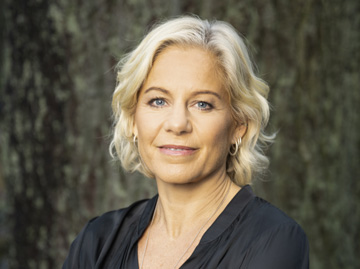
Susanna Campbell is an investor and industrial adviser with a wealth of experience in the field. She currently serves as a Senior Advisor at Norrsken VC, as well as the Chairman of the Board of NOD – Network of Design. In addition, she is a member of the board of several high-profile companies, including H2 Green Steel, Northvolt, and Kinnevik.
Tomas Carlsson
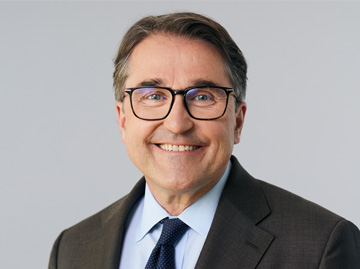
Tomas Carlsson is the President and CEO of NCC. From 2012 to 2018 he was the president of Sweco. Prior to that he held several senior positions at NCC, most recently as the Head of NCC’s construction operations in Sweden.
Karolina Ekholm
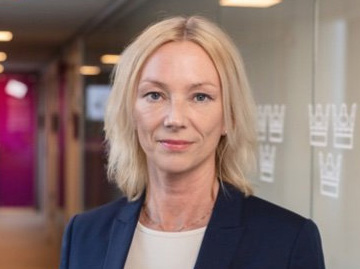
Karolina Ekholm is the Director General of the Swedish National Debt Office. She is professor at the Department of Economics, Stockholm University, since 2010 and has previously served as Deputy Governor of the Riksbank and State Secretary at the Ministry of Finance with responsibility for economic analysis and international economic cooperation.
John Hassler
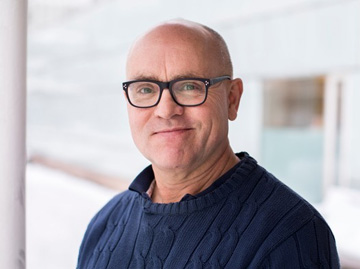
John Hassler is Professor of Economics at IIES, Institute for International Economic Studies, at Stockholm University. He is also Member of the Economic Sciences Prize Committee, the Royal Swedish Academy of Engineering Sciences and the Royal Swedish Academy of Sciences.
Jens Henriksson
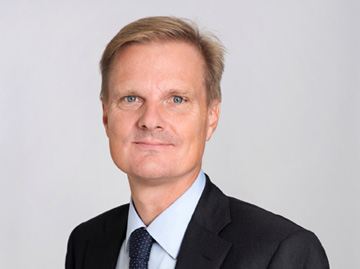
Jens Henriksson is the President and CEO of Swedbank. He holds a Fil. Lic in Economics from the Stockholm School of Economics and the University of California, San Diego. Prior to his role at Swedbank, Henriksson held several senior positions in both the financial sector and government. Notably, he served as the President and CEO of Folksam and as a State Secretary at the Swedish Ministry of Finance.
Ulf Kristersson
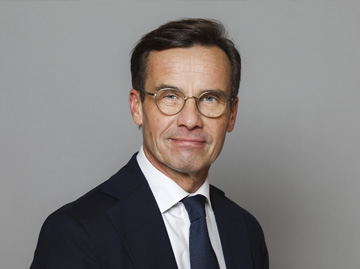
Ulf Kristersson, Prime Minister of Sweden.
Catherine L. Mann
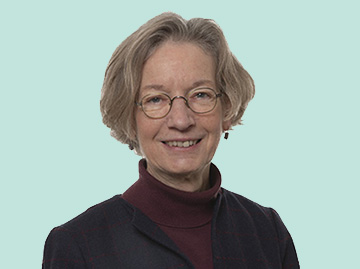
Catherine Mann is an economist who currently serves as an External Member of the Monetary Policy Committee of the Bank of England. She is also Professor at Brandeis University. Prior to her current appointments, she has held positions such as Chief Economist at Citibank and the OECD. Her research focuses on international economic relationships and outcomes, including trade, finance, climate, productivity, and inequality.
Kalina Manova
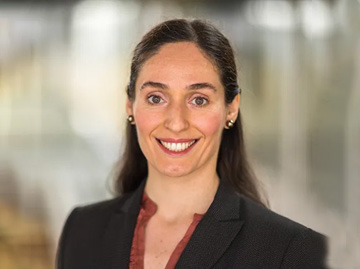
Kalina Manova is a Professor of Economics and Deputy Department Head at University College London (UCL). She specializes in international trade and investment and has published numerous articles in the world’s top economic journals. She is also a member of the Investment Committee of the European Economic Association and has served as an External Consultant for both the Bank of England and the Inter-American Development Bank.
Heléne Mellquist
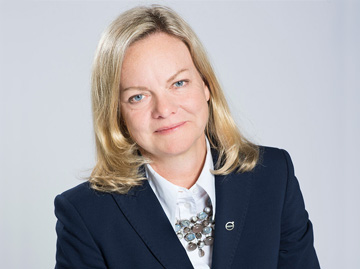
Heléne Mellquist is the President of Volvo Penta. She also serves as a Board member in Atlas Copco AB and Thule Group AB. Prior to her current position at Volvo Penta, she held several other senior roles within the Volvo Group. This includes serving as the Senior Vice President of Volvo Trucks Europe and Volvo Trucks International.
Jacob Wallenberg
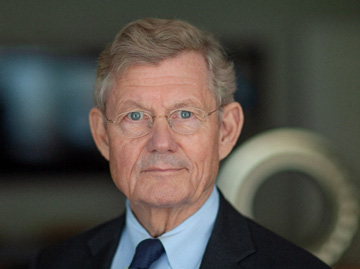
Jacob Wallenberg is Chairman of Investor, President and Chairman of the Confederation of Swedish Enterprise, Vice Chair of ABB, Ericsson, FAM, Patricia Industries, and Wallenberg Investments. He is also Director of The Knut and Alice Wallenberg Foundation, Tsinghua School of Economics Advisory board, Steering Committee European Round Table of Industrialists and Member of IBLAC (Mayor of Shanghai’s International Business Leaders Advisory Council) and Royal Swedish Academy of Engineering Sciences (IVA).
Moderator: Katrine Kielos-Marçal

Katrine Kielos-Marçal is a Swedish journalist, lecturer and moderator based in England. She writes for the Swedish daily newspaper Dagens Nyheter and is the author of books like Who Cooked Adam Smith’s Dinner?, which was named one the greatest books of the year by The Guardian in 2015, and Mother Of Invention: How Good Ideas Get Ignored In An Economy Built For Men. In her role as a financial journalist, she has interviewed several of the world’s leading economic thinkers, politicians, and business leaders.